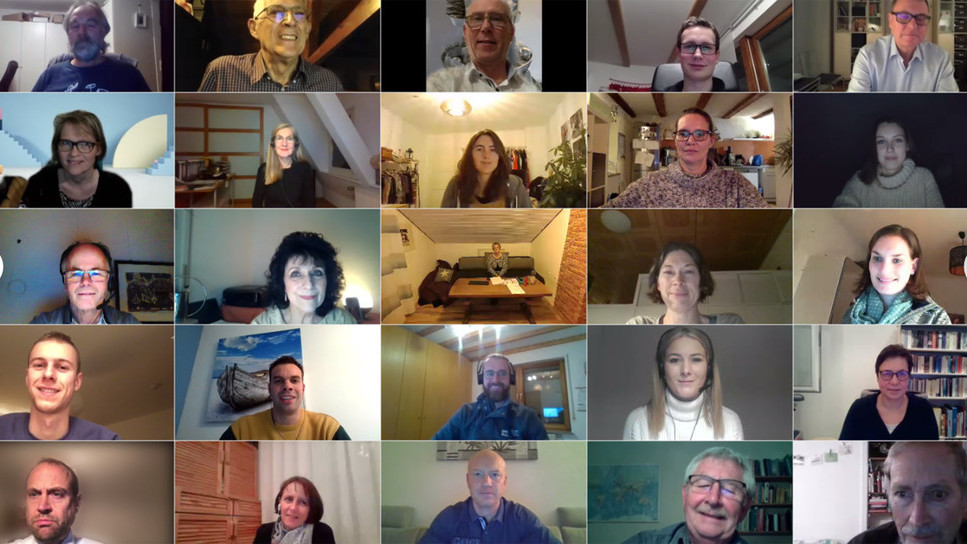Citizens' Forum on COVID-19 advocates compulsory vaccination

The majority of the randomly selected "Citizens' Forum COVID-19" in the German State of Baden-Württemberg is in favour of a general vaccination obligation and against 2G regulations. The final report, presented by the group of 55 citizens on 27 January 2022, contains eleven recommendations.
In February 2021, the forum participants had unanimously rejected the introduction of a general vaccination obligation. In the last vote in mid-December 2021, however, 18 participants had voted in favour of a general vaccination obligation, while 13 voted against.
Against exclusion
With 16 votes in favour to 15 against, the Citizens' Forum opposes the 2G regulations that federal and state politicians consider necessary in certain phases. The exclusion of the unvaccinated could lead to the division of society. Other recommendations address issues of testing strategy, vaccination capacity and education, nursing shortages, lockdowns, school closures and social cohesion.
In the Citizens' Forum COVID-19, about fifty randomly selected citizens from all over Baden-Württemberg had spent a year discussing the measures, necessities and effects of the COVID-19 pandemic. A special feature of this citizens' forum was that the participants themselves determined the topics of the sessions. In each session, the participants mostly dealt with currently discussed topics related to the COVID-19 pandemic. Experts from politics, science, society and business provided impulses for the dialogue.
"Thinking things through together"
"The participants of the Citizens' Forum COVID-19 set a good example of what dialogue means: thinking through and discussing a matter together. That is stimulating. And politics must allow itself to be questioned by other opinions. Without joint discussion there can be no democracy. After that, you have to take responsibility. That is where the elected bodies decide," explained Prime Minister Winfried Kretschmann.
Especially in such a crisis situation, he said, it is important not to let the dialogue with citizens break down. After all, the relationship between the state and its citizens is exposed to particular challenges and strains, in which emotions boil up, impatience increases or existential fears spread.
Changes in knowledge and circumstances
According to Barbara Bosch, State Councillor for Civil Society and Citizen Participation, the state of knowledge and the facts have changed in the course of the pandemic. Therefore, the recommendations formulated in the framework of the citizens' forum must be seen in the context of the time of the respective debate and the course of the pandemic. Kretschmann explained: "Such a pandemic affects everyone, often very deeply. The aspects that have to be weighed are very complex. The mutating virus constantly creates new situations, new ignorance."
The Citizens' Forum COVID-19 had started on 16 December 2020 and had met monthly by video conference for a year. In the last two meetings on 18 November and 16 December 2021, the findings and recommendations of the forum were summarised, revised, supplemented and a final report was prepared. The final report was symbolically handed over to the Prime Minister via video conference on 27 January 2022.
Representation of the population
More than 2,000 people were randomly selected and contacted for the Citizens' Forum. 258 people responded and agreed to participate. From these 258 people, 50 people were randomly selected for the start of the citizens' forum. The interested parties were divided in such a way that the composition of the citizens' forum in the end adequately reflected the population structure. For various reasons, nine participants dropped out during the Citizens' Forum. Of the remaining 41 participants, ten did not participate in the final votes or were not present in the final session.
The state government and state parliament will soon deal with the recommendations of the citizens' forum.
Read more: